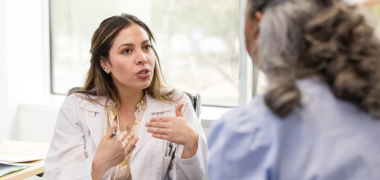
This role has a moderate level of AI exposure. AI can enhance efficiency for some tasks, but this job still relies on human skills and decision-making.
Explore all careersA Medical Science Liaison communicates scientific knowledge to healthcare professionals, supports clinical development, and offers insights on medical trends.
Get qualified to work as a Medical Science Liaison with a course recognised across Australia. Speak to a training provider to learn more.









Browse occupations related to Medical Science Liaison



If you’re seeking advancement in your career within the medical field, exploring Medical Science Liaison courses in New South Wales is a valuable step. These courses are designed for experienced learners eager to further their expertise and professional growth. With three distinct higher education options available, students can select the pathway that aligns best with their career goals. The Bachelor of Medical Science, offered by providers such as UTS, equips graduates with the essential knowledge to excel in the medical landscape.
Another excellent choice is the Bachelor of Health Sciences (Honours), which is available through The University of Sydney. This course prepares students for roles in health care that require sharp analytical skills and a comprehensive understanding of medical science. Those interested in the biological underpinnings of health might consider the Bachelor of Biomedical Science offered by institutions like ACU. Each of these pathways is specially crafted to support the aspiring Medical Science Liaison.
Pursuing one of these Medical Science Liaison courses in New South Wales not only enriches your academic foundation but also opens doors to various job roles in the healthcare sector. Graduates can step into positions such as a Medical Laboratory Technician, General Practitioner, or even specialized roles like Dermatologist or Cardiologist. The diverse range of career opportunities ensures that students can find fulfilling paths that suit their interests and skills.
With the trusted backing of registered training organisations in New South Wales, those enrolled in these Medical Science Liaison courses can be assured of receiving quality education that meets industry standards. This preparation not only enhances employability but also provides essential networking opportunities with industry professionals. From roles as a Medical Advisor to career paths in medical research, the training provided prepares students to thrive in a competitive job market.
Investing in your education through any of the available Medical Science Liaison courses in New South Wales offers the potential for significant career advancements. Join reputable institutions such as UTS or The University of Sydney and leverage the excellent curriculum that link theory with practical applications. The robust employment prospects and the chance to contribute significantly to healthcare innovation await those equipped with the right education.